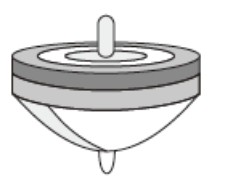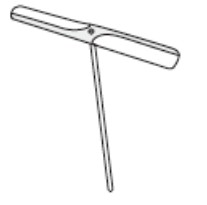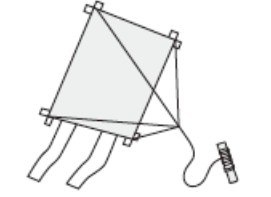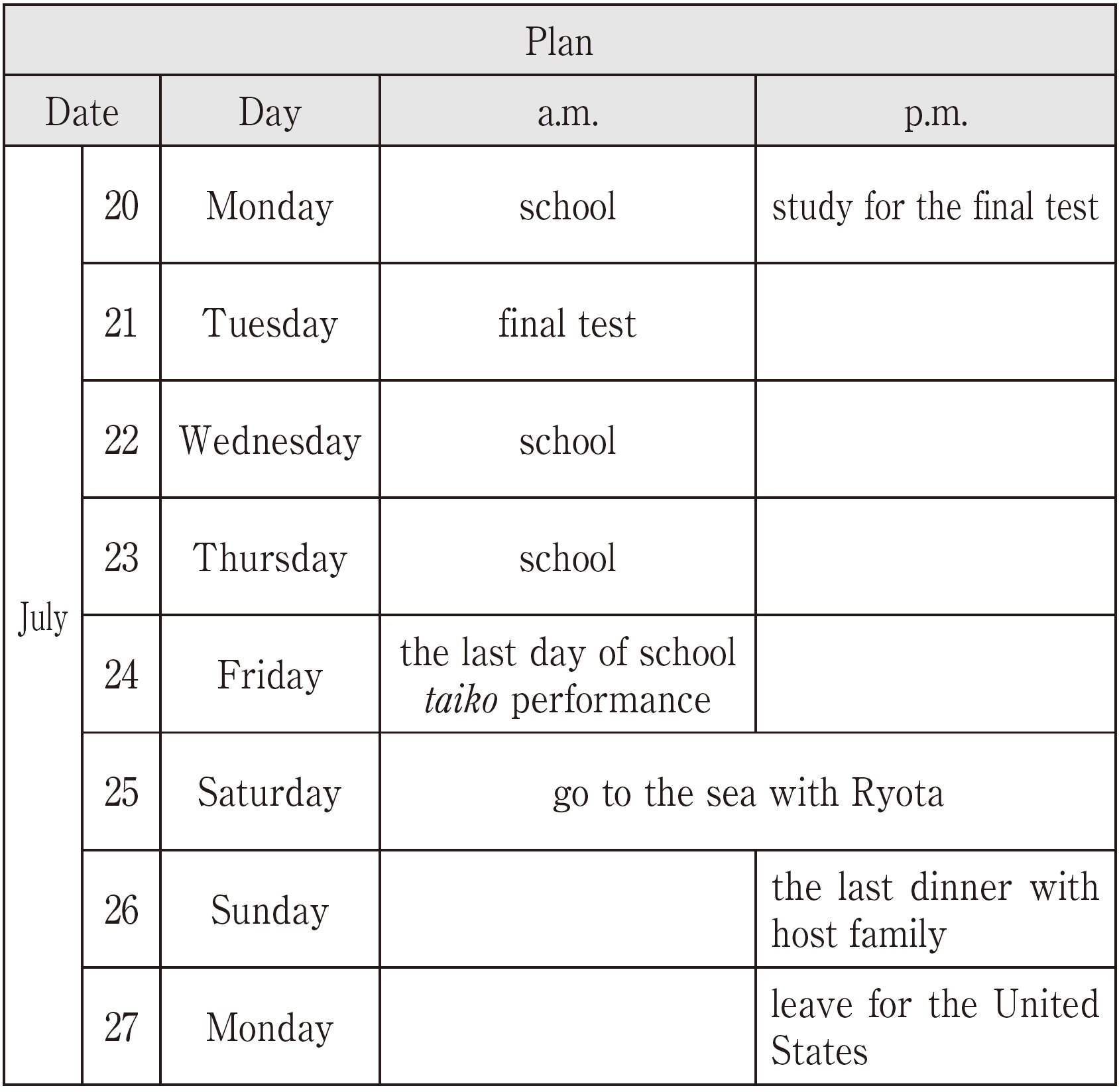令和
英語
注意
| 1 | 問題は |
| 2 | 検査 |
| 3 | 最初に |
| 4 | 声を |
| 5 | 答えは |
| 6 | 答えは |
| 7 | 答えを |
| 8 | 答えを |
| 9 | 受検 |
| 10 | 解答 |
1
リスニングテスト(放送による指示に従って答えなさい。)
〔問題A〕 次のア〜エの中から適するものをそれぞれ一つずつ選びなさい。
<対話文1>
ア On the highest floor of a building.
イ At a temple.
ウ At their school.
エ On the seventh floor of a building.
<対話文2>
ア To see Mr. Smith.
イ To return a dictionary.
ウ To borrow a book.
エ To help Taro.
<対話文3>
ア At eleven fifteen.
イ At eleven twenty.
ウ At eleven thirty.
エ At eleven fifty-five.
〔問題B〕 <Question 1>では,下のア〜エの中から適するものを一つ選びなさい。
<Question 2>では,質問に対する答えを英語で書きなさい。
<Question 1>
ア For six years.
イ For three years.
ウ For two years.
エ For one year.
<Question 2>
(15秒程度,答えを書く時間があります。)
2
次の各問に答えよ。
(*印の付いている単語・語句には,本文のあとに〔注〕がある。)
1 高校生のRyotaとアメリカからの留学生のJamesは,Ryotaの家で,Jamesが作りたい日本の伝統的なおもちゃについて話をしている。 (A) 及び (B) の中に,それぞれ入る単語の組み合わせとして正しいものは,下のア〜エのうちではどれか。ただし,下のⅠは,二人が見ている日本の伝統的なおもちゃを紹介したウェブサイトの一部である。
| Ryota: | What traditional Japanese *toys do you want to make? |
| James: | Well, I want to make something for my brother in the United States. I want to play with him. |
| Ryota: | I see. How about making a (A) ? |
| James: | That's nice. I want to make one. |
| Ryota: | I have some paper. We also need bamboo and *string. |
| James: | Oh, do any shops around here sell them? |
| Ryota: | Yes. There is a home center near my house. |
| James: | OK. |
| Ryota: | You should also make a (B) . We need only bamboo to make one. |
| James: | I'd love to. I think my brother will be happy to play it. |
| Ryota: | It'll make beautiful sounds. |
Ⅰ
〔注〕 toy おもちゃ string 糸 spinning top こま material 材料
bamboo dragonfly 竹とんぼ bamboo flute 竹笛 kite 凧
ア (A) tako (B) taketombo
イ (A) koma (B) taketombo
ウ (A) tako (B) takebue
エ (A) koma (B) takebue
2 RyotaとJamesは,Jamesが帰国するまでの予定について話をしている。 (A) 及び (B) の中に,それぞれ入る単語の組み合わせとして正しいものは,次のページのア〜エのうちではどれか。ただし,次のページのⅡ-1,Ⅱ-2は,それぞれ,二人が見ている,Jamesが書いたこれからやるべきことのリストと計画である。
| James: | It's July twentieth. I'm going to go back to my country next Monday. |
| Ryota: | Don't forget to go to the sea with me on the twenty-fifth. I hope it'll be sunny on that day. |
| James: | I do, too. I have no other plans for that day. But I'll be busy on other days. I have made a list of things to do and a plan. Look at them. I need to decide when I should do the things on the list. There are some *blanks in the plan. They mean that I'm free. |
| Ryota: | Tell me about the photo book. |
| James: | It'll be a present for my *host family. They took me to many interesting places, and I took many photos. |
| Ryota: | They'll be happy to get it. When will you make it? |
| James: | I'll do it on Friday afternoon and on Sunday morning. |
| Ryota: | Why don't you add photos of the last dinner on the twenty-sixth? |
| James: | That's a good idea. I'll give it to them on the (A) . I have some time to do it in the morning on that day. |
| Ryota: | OK. How about the taiko performance? |
| James: | As you know, I have learned how to play the taiko. I'll show that to my classmates and teachers. I'll practice it on Wednesday and Thursday afternoons. |
| Ryota: | I see. |
| James: | I have one more thing to do. I'll go shopping to buy some gifts for my family on the (B) . We have no afternoon classes, and I have no plans for that afternoon. |
| Ryota: | That's good. |
| James: | Can you go with me? |
| Ryota: | Of course. |
〔注〕 blank 空欄 host family ホストファミリー
Ⅱ-1
List of Things to Do
□ make a photo book
□ practice for a taiko performance
□ buy some gifts
Ⅱ-2
ア (A) twenty-seventh (B) twenty-first
イ (A) twenty-sixth (B) twenty-first
ウ (A) twenty-seventh (B) twenty-second
エ (A) twenty-sixth (B) twenty-second
3 次の文章は,アメリカに帰国したJamesがRyotaに送ったEメールの内容である。
Dear Ryota,
Thank you for your help during my stay in Japan. Going to the sea with you is a special memory. I learned very much about Japanese culture. Also, I was very happy because I had good classmates and they always helped me. They were very kind to me and taught me about Japan.
After returning to my country, I enjoyed playing with my brother. We were happy to play with traditional Japanese toys together. I want to say thank you for making them with me. I think doing something for someone is a good thing. So I have tried one more thing. I learned how to cook okonomiyaki from my host family. Yesterday, I cooked it for some of my friends. I wanted them to try some Japanese food. When they ate it, they said, "It's delicious. Thank you, James." I was glad to hear that.
Have you ever done something good for someone? Please tell me about it.
I'm looking forward to hearing from you soon.
Yours,
James
(1) このEメールの内容と合っているのは,次のうちではどれか。
ア James thought it was good for someone to do something for him.
イ James was helped by his classmates in Japan to tell his host family about his country.
ウ James was glad because some of his friends thanked him for teaching them how to cook okonomiyaki.
エ James and his brother were happy because they played with traditional Japanese toys made by James and Ryota.
(2) RyotaはJamesに返事のEメールを送ることにしました。あなたがRyotaだとしたら,Jamesにどのような返事のEメールを送りますか。次の<条件>に合うように,下の の中に,三つの英語の文を書きなさい。
<条件>
○前後の文につながるように書き,全体としてまとまりのある返事のEメールとすること。
○Jamesに伝えたい内容を一つ取り上げ,それをした理由などを含めること。
Hello, James,
Thank you for your e-mail. I enjoyed reading it. I have a lot of good memories. I especially enjoyed making traditional Japanese toys and going to the sea with you.
I'll try to answer your question. You asked me, "Have you ever done something good for someone?" My answer is yes. I'll write about it.

I'll tell you some other stories in the future.
I'm looking forward to seeing you again.
Your friend,
3
次の対話の文章を読んで,あとの各問に答えよ。
(*印の付いている単語・語句には,本文のあとに〔注〕がある。)
Rumi, Kenta, and Aika are first-year high school students in Tokyo. Steve is a high school student from the United States. They are talking in their classroom after lunch.
| Rumi: | Hi, Kenta and Steve, what are you doing? |
| Kenta: | Hi, Rumi and Aika. We're talking about how to *express the numbers of some things in Japanese. |
| Steve: | Sometimes I don't know what word to add after a number. For example, "mai" for pages of paper and "satsu" for books. |
| Rumi: | In English, I often forget to add words before some things. "A piece of cake" is one example. |
| Aika: | (1)I do, too. There are many differences between English and Japanese, and there are a lot of things to remember. Sometimes it is *confusing. |
| Rumi: | Yes, it is. Steve, are there any other difficult things for you about Japanese? |
| Steve: | Yes. Last night, my *host mother said, "... Murata Sensei ga mieru ...." I thought she could see Mr. Murata, our *homeroom teacher, there. So I looked around, but he wasn't there. (2)That was confusing. |
| Kenta: | She wanted to say that he would come. |
| Steve: | That's right. |
| Rumi: | Is there anything like that in English? |
| Steve | Yes. I'll give you an example. What do you say when you thank someone for their help? |
| Aika: | I say, "Thank you for your help." |
| Steve: | Yes. We also say "I am grateful for your help," especially in a more *formal *situation. |
| Rumi: | (3)Oh, I remember another expression like that. |
| Aika: | Tell us about it. |
| Rumi: | Sure. When I was a junior high school student, I went to the teachers' room to ask Mr. Brown about a report. When I came into the room, he said to me, "Please have a seat." I couldn't understand what he meant. |
| Steve: | It means "Please sit down." It's also used in formal situations. |
| Aika: | That's interesting. I think we should learn more about formal expressions and use them more often both in English and in Japanese. |
| Rumi: | Should I use them with Steve? |
| Kenta: | Well.... (4)I don't think so. |
| Aika: | What do you think? |
| Kenta: | When I talk with Steve in Japanese, I choose simple expressions because I want him to understand me. He is my close friend. |
| Aika: | I see. We should think about the best expressions to use in different situations. |
| Steve: | And the *speed of speaking, too. Rumi and Aika, you do that for me. And you also use simple expressions. I feel that is very kind. I enjoy talking with you in Japanese. |
| Aika: | I do, too. |
| Kenta: | I also have realized one thing in teaching Japanese to Steve. Japanese is interesting. |
| Rumi: | Why do you think so? |
| Kenta: | Because it has many different ways to express the same thing. For example, when I say "I" in Japanese, I can say "watashi," or "watakushi," or "boku." |
| Aika: | Also, sometimes we don't need to use a word expressing "I." |
| Kenta: | That's right. I have never thought of that. "Kansha shiteimasu." |
| Steve: | Wow, that Japanese expression sounds formal. |
| Kenta: | You're right. It means "I am grateful." |
| Steve: | Interesting. I want to learn more Japanese expressions. Would you mind teaching me more? |
| Rumi: | What? |
| Steve: | I mean "Will you teach me more?" |
| Aika: | Of course. And would you mind teaching us more English? |
Rumi and Kenta: Yes, please.
| Steve: | (5)I will be happy to do that. |
〔注〕 express 表現する
confusing 混乱させる
host mother ホームステイ先の母
homeroom teacher 担任の先生
formal 改まった
situation 状況
speed 速さ
〔問1〕 (1)I do, too. の内容を最もよく表しているのは,次のうちではどれか。
ア Aika remembers that there are many differences between English and Japanese, too.
イ Aika talks about how to express the number of some things, too.
ウ Aika adds a word after each number, too.
エ Aika often forgets to add words before some things, too.
〔問2〕 (2)That was confusing. の内容を最もよく表しているのは,次のうちではどれか。
ア It was confusing to Steve because his host mother said Mr. Murata, his homeroom teacher, looked like him.
イ It was confusing because Steve thought his host mother could see Mr. Murata, his homeroom teacher.
ウ It was confusing to Steve because Mr. Murata, his homeroom teacher, was there.
エ It was confusing because Steve couldn't see his host mother.
〔問3〕 (3)Oh, I remember another expression like that. の内容を,次のように書き表すとすれば, の中に,下のどれを入れるのがよいか。
Rumi remembered .
ア another English expression used in a formal situation
イ another Japanese expression used in a formal situation
ウ another English expression for saying "Thankyou." to people for their help
エ another Japanese expression for saying "Thankyou." to people for their help
〔問4〕 (4)I don't think so. の内容を,次のように書き表すとすれば, の中に,下のどれを入れるのがよいか。
Kenta doesn't think that .
ア Rumi should use formal expressions with Steve
イ it is difficult for Rumi to use formal expressions
ウ Steve should understand what Rumi would like to say
エ it is important for Rumi to use formal expressions in formal situations
〔問5〕 (5)I will be happy to do that. の内容を,次のように書き表すとすれば, の中に,下のどれを入れるのがよいか。
Steve will be happy to .
ア use many kinds of Japanese expressions used in formal situations
イ give an example of an English expression used in a formal situation
ウ teach more English to Aika, Rumi, and Kenta
エ learn Japanese from Aika, Rumi, and Kenta
〔問6〕 次の英語の文を,本文の内容と合うように完成するには, の中に,下のどれを入れるのがよいか。
When Aika and Rumi talk with Steve in Japanese, they use expressions, and Steve enjoys talking with them.
ア difficult
イ simple
ウ formal
エ interesting
〔問7〕 次の文章は,Kentaたちと話した日に,Steveが書いた日記の一部である。 (A) 及び (B) の中に,それぞれ入る単語の組み合わせとして正しいものは,下のア〜エのうちではどれか。
Today, I talked with my friends Rumi, Kenta, and Aika about different expressions, both in Japanese and in English. First we talked about how to express the numbers of things. It is difficult for Rumi and Aika to do that in English. Rumi (A) me about something difficult in Japanese, and I said that once I couldn't understand one of my host mother's expressions in (B) .
After that we talked about English expressions used in formal situations. When we talk in Japanese, their Japanese is usually easy to understand. I enjoy talking with them, both in Japanese and in English. Finally, Kenta said (B) was interesting. I agree with him. Sometimes it is difficult, but I enjoy studying it. I (A) them to teach me more Japanese expressions.
ア (A) asked (B) English
イ (A) told (B) English
ウ (A) asked (B) Japanese
エ (A) told (B) Japanese
4
次の文章を読んで,あとの各問に答えよ。
(*印の付いている単語・語句には,本文のあとに〔注〕がある。)
Haruto was a second-year high school student. He had two good friends, Ayaka and Olivia. Olivia was from Australia. One day in May, Ayaka said to Haruto, "I go to a astchildren's center as a volunteer every Wednesday after school. It's near our school. Some volunteers are needed there. Olivia will join us next week. Can you help us?" Haruto answered, "Me? Do you really think I'll be able to help you? I'm not sure." Ayaka said to him, "Yes, I'm sure you will be able to do that." He finally said yes. Ayaka was happy to hear that.
The next Wednesday, Haruto visited the children's center with Ayaka and Olivia. There, Ms. Sasaki, one of the *staff members, welcomed them and said, "In our center, please spend a lot of time with the children." She also explained, "This center is used by many children, especially by elementary school students."
In the *playroom, some children were playing. Olivia said to them, "Hi! I'm Olivia, from Australia. I'm studying Japanese, and I want to read picture books to you." Next, Haruto said that he wanted to play together and to teach them math. At that time, one boy was looking down and drawing pictures. Ayaka said, "He is Kazuya, nine years old. He usually comes here after school." Haruto spoke to him with a smile, "Hi! Will you play with me?" Kazuya answered no and continued drawing pictures. Ayaka said to Haruto, "Don't worry." Haruto didn't understand Kazuya's feelings. Ms. Sasaki said, "Kazuya is a very shy boy. To *make friends with him will take a lot of time." Haruto said, "Oh, I see." He said to himself, "It won't be easy to make friends with Kazuya, but I want to build a friendship with him."
One week passed. On the second visit, Haruto and some children were going to play soccer outside. He said to Kazuya, "Join us." Kazuya only said no and kept drawing pictures. That made Haruto disappointed. He thought, "Kazuya doesn't want to talk with me." When he went to the library of the center, Olivia was enjoying reading Japanese picture books with some children there. Ayaka was also helping some children with their homework. They looked happy.
The next week, Haruto didn't try to speak to Kazuya. He helped some children with their homework. That night, Ayaka called him. She said to him, "You didn't speak to Kazuya today. I heard that from him. He looked sad." Haruto was surprised to hear that. He said to himself, "What is the best way to build a friendship with Kazuya? He spends time in drawing pictures in the center. That may be a key." Haruto had an idea about how to build a friendship with Kazuya.
On Wednesday of the next week, Haruto went to the children's center again. It was his fourth visit. He hoped his idea would be *successful. He began to draw pictures on drawing paper. He *noticed that Kazuya was looking at him. Kazuya asked Haruto, "What are you doing?" He looked nervous. Haruto answered, "I'm making *picture-story shows. I'm not good at drawing pictures. Will you help me?" Kazuya thought for a while and said, "Yes, I like drawing pictures." That made Haruto happy. Haruto continued, "After finishing making them, I'll ask Olivia to read them to children here." Kazuya said, "Sounds good."
After that, Kazuya and Haruto started to make picture-story shows together. While drawing, they talked about themselves. Kazuya said, "When I met you for the first time, I was glad that you spoke to me with a smile. But I'm sorry I couldn't say anything." Haruto *nodded and said, "Don't worry about that." Kazuya smiled. Ayaka and some children came and said, "Your pictures are nice, Kazuya!" Kazuya smiled and said, "Thank you." He looked very happy.
Two weeks later, Kazuya and Haruto finished making their picture-story shows and showed them to Olivia. She said, "They are so beautiful! Good job!" Haruto asked her to read them to children there. She smiled and said, "Of course, I will." Soon, Ms. Sasaki came and said to Kazuya and Haruto, "Oh, wonderful! Now you are good friends!"
〔注〕 children's center 児童館 staff member 職員
playroom 遊戯室 make friends with 〜 〜と友達になる
successful 成功した notice 気付く
picture-story show 紙芝居 nod うなずく
〔問1〕 Haruto didn't understand Kazuya's feelings. の内容を,次のように書き表すとすれば, の中に,下のどれを入れるのがよいか。
Haruto didn't understand .
ア why Kazuya wanted to speak to him
イ why Kazuya answered no and continued drawing pictures
ウ why Kazuya wanted him to play together and to teach math
エ why Kazuya told Ayaka about drawing pictures
〔問2〕 次のア〜エの文を,本文の内容の流れに沿って並べ,記号で答えよ。
ア Ayaka called Haruto and told him about Kazuya.
イ Olivia looked happy when she was reading Japanese picture books with some children.
ウ Olivia said that the picture-story shows made by Kazuya and Haruto were very beautiful.
エ Ayaka was happy to hear that Haruto decided to go to the children's center.
〔問3〕 次の(1)〜(3)の文を,本文の内容と合うように完成するには, の中に,それぞれ下のどれを入れるのがよいか。
(1) When Ayaka told Haruto about the children's center, .
ア he was not sure that he would be able to help her
イ he wanted Olivia to join them every Wednesday after school
ウ he hoped that some volunteers were needed at the children's center
エ he learned it was used by many children, especially by elementary school students
(2) When Haruto spoke to Kazuya on the second visit, .
ア he didn't think that making friends with Kazuya would take a lot of time
イ he was surprised to hear that Kazuya went to the library of the center
ウ he thought Kazuya wanted to play together in the playroom
エ he was disappointed that Kazuya said no and kept drawing pictures
(3) On the fourth visit, Haruto was happy to hear that .
ア Kazuya liked Haruto's pictures
イ Kazuya would help him with picture-story shows
ウ Kazuya wanted to play with other children
エ Kazuya was going to play soccer with him
〔問4〕 次の(1),(2)の質問の答えとして適切なものは,それぞれ下のうちではどれか。
(1) How did Kazuya feel when he met Haruto for the first time?
ア He was sad because he wanted to continue drawing pictures.
イ He felt that it wouldn't be easy to make friends with Haruto.
ウ He felt that it was easy to talk with Haruto.
エ He was glad that Haruto spoke to him with a smile.
(2) How did Haruto build a friendship with Kazuya?
ア He did it by reading picture-story shows with other children.
イ He did it by asking Olivia to read picture-story shows to children with them.
ウ He did it by understanding what Kazuya liked and doing something together.
エ He did it by asking Kazuya to play with other children.






